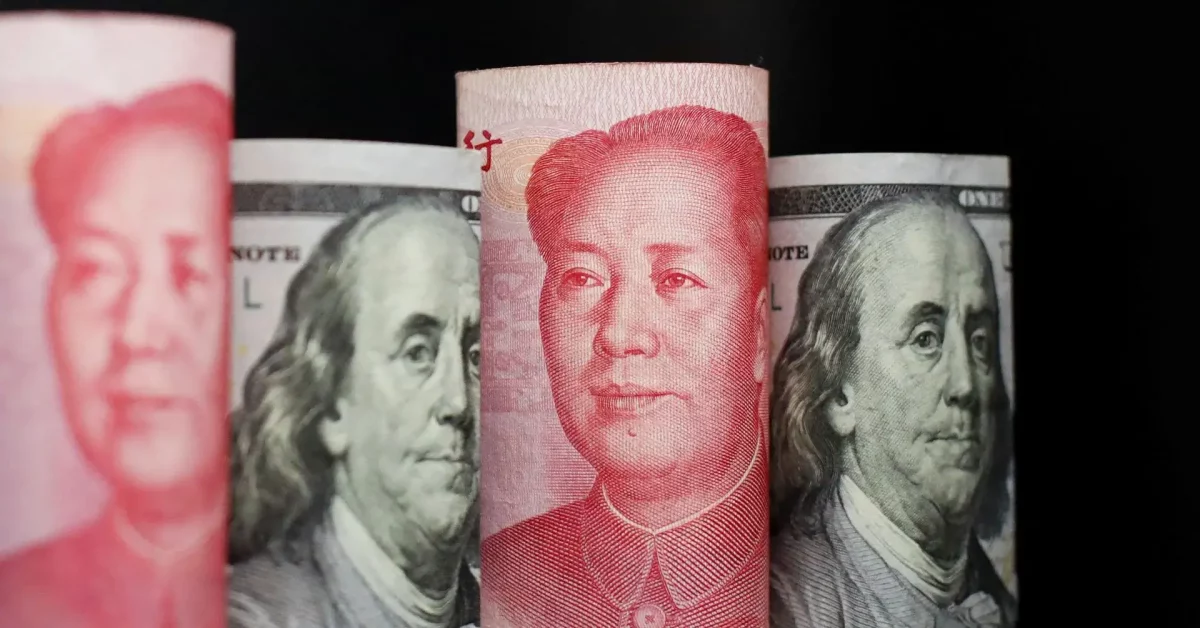China Expands Yuan’s Global Reach With Record Settlements and QR Payments
12.05.2025 21:00 2 min. read Alexander Stefanov
China is making quiet but decisive moves to elevate the yuan’s status in global finance, leveraging recent geopolitical shifts and trade negotiations to boost the currency’s reach.
Following the recent U.S.-China trade agreement signed in Geneva, the yuan saw a surge in international activity, with cross-border settlements hitting a record 4.3 trillion yuan in Q1 alone.
Analysts suggest the demand for the yuan is steadily growing, surpassing that of other local currencies. Though it still trails far behind the dollar or euro in global dominance, the Chinese government’s efforts to internationalize the yuan are gaining traction, especially in emerging markets.
In a bid to make spending in yuan seamless beyond its borders, China has rolled out UnionPay QR-code payment systems across nearly 30 countries, primarily in Southeast Asia. This move enables tourists and merchants in those nations to transact in yuan with the ease of scanning a code—further embedding the currency in everyday commerce.
What began as a tightly controlled currency for internal use is now evolving into a tool for international payments—even for commodities. According to reports, the People’s Bank of China is preparing to introduce yuan-based QR payments for settling trades in goods such as oil, metals, and gold. If fully implemented, this could represent a major shift in how global commodities are priced and traded.
Beijing’s long-term goal appears clear: reduce reliance on the U.S. dollar and carve out a larger role for the yuan in the global financial system. With digital tools and trade diplomacy working in tandem, the yuan is steadily positioning itself for a broader role on the world stage.
-
1
U.S. PCE Inflation Rises for First Time Since February, Fed Rate Cut Likely Delayed
27.06.2025 18:00 1 min. read -
2
Key U.S. Economic Events to Watch Next Week
06.07.2025 19:00 2 min. read -
3
Gold Beats U.S. Stock Market Over 25 Years, Even With Dividends Included
13.07.2025 15:00 1 min. read -
4
U.S. Announces Sweeping New Tariffs on 30+ Countries
12.07.2025 16:30 2 min. read -
5
US Inflation Heats Up in June, Fueling Uncertainty Around Fed Cuts
15.07.2025 16:15 2 min. read
US Inflation Heats Up in June, Fueling Uncertainty Around Fed Cuts
U.S. inflation accelerated in June, dealing a potential setback to expectations of imminent Federal Reserve rate cuts.
Gold Beats U.S. Stock Market Over 25 Years, Even With Dividends Included
In a surprising long-term performance shift, gold has officially outpaced the U.S. stock market over the past 25 years—dividends included.
U.S. Announces Sweeping New Tariffs on 30+ Countries
The United States has rolled out a broad set of new import tariffs this week, targeting over 30 countries and economic blocs in a sharp escalation of its trade protection measures, according to list from WatcherGuru.
Key U.S. Economic Events to Watch Next Week
After a week of record-setting gains in U.S. markets, investors are shifting focus to a quieter yet crucial stretch of macroeconomic developments.
-
1
U.S. PCE Inflation Rises for First Time Since February, Fed Rate Cut Likely Delayed
27.06.2025 18:00 1 min. read -
2
Key U.S. Economic Events to Watch Next Week
06.07.2025 19:00 2 min. read -
3
Gold Beats U.S. Stock Market Over 25 Years, Even With Dividends Included
13.07.2025 15:00 1 min. read -
4
U.S. Announces Sweeping New Tariffs on 30+ Countries
12.07.2025 16:30 2 min. read -
5
US Inflation Heats Up in June, Fueling Uncertainty Around Fed Cuts
15.07.2025 16:15 2 min. read


